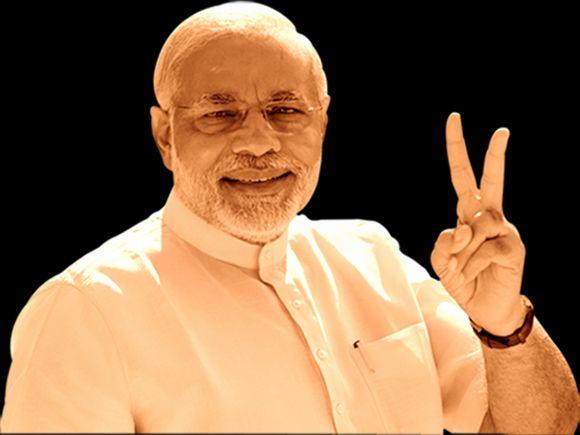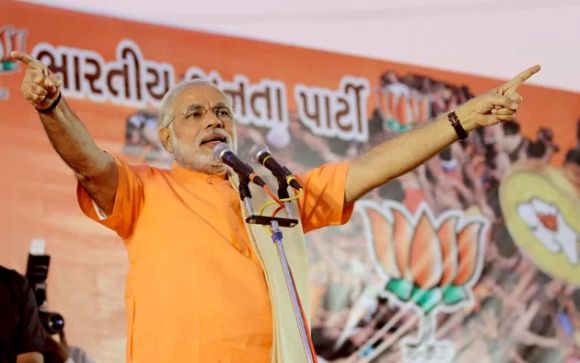 | « Back to article | Print this article |
Mr Modi, state politics is not a national game
Invincible as he appears in his western stronghold, can Narendra Modi sweep forth from it and take New Delhi for an insurgent BJP? The good news for Modi's rivals in his party is that these results don't even begin to suggest he can.
In one of the most anticipated and predicted election results of recent times, Gujarat Chief Minister Narendra Modi has been returned to office for the third successive time, with by all accounts a largely unchanged majority in the state assembly.
Frantic spinning worthy of a cricket World Cup final began even before the results were final; some in Modi's Bharatiya Janata Party declared it was as good as a referendum on the central government, and senior leaders of the Congress even tried to sell Modi's thumping win as a victory for the Congress.
Yet, shorn of hyperbole, it is worth looking at Modi's achievement closely.
Few chief ministers are re-elected twice; in recent times, Sheila Dikshit has done it in Delhi and Naveen Patnaik in Odisha.
Modi, however frantic and cutting-edge his campaign, never seems to have been in any real danger of losing.
Click on NEXT to read further...
Mr Modi, state politics is not a national game
Gujarat's recent history, however, is intriguing.
It is important to remember that this may be Modi's third successive win there but, for the BJP, it is the fifth successive win.
Indeed, from 1995, the first BJP victory, to 2012, the Congress has stayed between 45 and 60-odd assembly seats -- in fact, slowly increasing its tally.
So the BJP's dominance in Gujarat is as complete as the Left's once was in West Bengal, and appears at the moment capable of lasting as long.
Meanwhile, final vote shares for the competing parties are not yet known; but if the Congress gets around 38 to 40 per cent of the vote, as seems likely given initial projections, then it continues the process of the movement of the vote away from third parties to the BJP and the Congress -- small parties have shrunk from 25 per cent of the vote in 1995 to 12 per cent in the last election -- and the steady increase of both big parties' vote shares for the past five elections.
In other words, Gujarat 2012 threw up the most predictable of results, given the state's political past.
The reason it has received so much attention is not, however, the peculiar nature of Gujarat's polity but the personal fortunes of Modi.
Click on NEXT to read further...
Mr Modi, state politics is not a national game
Invincible as he appears in his western stronghold, can he sweep forth from it and take New Delhi for an insurgent BJP?
The good news for Modi's rivals in his party is that these results don't even begin to suggest he can.
Even in Gujarat, Modi has been unable to deliver the 19 and 20 (out of 26) Lok Sabha seats his predecessors gave Atal Bihari Vajpayee.
Indians vote differently at different levels, frequently for sub-nationalist strongmen at the local level and pushed by national-level issues in general elections.
Look no further than Himachal Pradesh, where voters have ignored corruption allegations against the Congress' local satrap, Virbhadra Singh, and voted the BJP out.
If the Congress has lost one large state after another, it has only itself to blame -- it needs stronger regional leaders.
The spin will tell you this was a referendum of one sort or another, or a setback to Modi or to Rahul Gandhi, or a reminder that economic growth is a political vote spinner.
The truth is that these elections were a salutary reminder that in India state politics is a local and not a national affair, and that every state's history and dynamics are different and fascinating in their own way.



